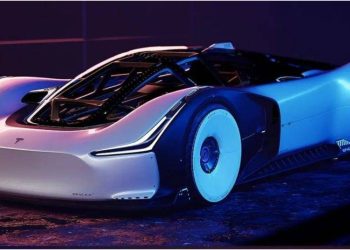The Renault Group has signed two major partnerships for the production of lithium-ion batteries in France. The first is with Envision AESC, a longtime Nissan partner; while the second is with Verkor, a Grenoble-based start-up specializing in the development of battery cells for electric vehicles.
Imagine AESC will develop a gigafactory in Douai with a capacity of 9 GWh in 2024 and with the goal of reaching 24 GWh by 2030. It will also invest up to 2 billion euros to produce the latest technological, cost-competitive, low-carbon and safe batteries. for electric models, including the future R5.
For that reason, this Envision AESC partnership foresees 2,500 new jobs by 2030.
The Douai gigafactory paves the way for the production of low-carbon batteries as part of the objectives outlined in the European Green Deal and for the development of closed-loop recycling solutions for production waste and end-of-life batteries.
“Envision Group’s mission is to be the net zero technology partner of choice for global enterprises, governments, and cities. We are therefore delighted that Renault Group chose Envision AESC batteries for its next generation of EVs,” said Lei Zhang, Founder and CEO of Envision Group.
Likewise, he informed that this first phase of development will unlock future large-scale investments to grow the local supply chain and develop all the opportunities of the battery life cycle, including energy storage, battery reuse, smart charging and closed-loop recycling.
It may also interest you: Volkswagen ID.3 and 4 functions stand out above the rest
Renault Group signed a Memorandum of Understanding to become a Verkor shareholder with a stake of more than 20% in the company and plans to join the consortium that was created around the French start-up in 2020. The consortium aims to address the challenges related to digitization, decarbonization and the strengthening of French and European industries within the sector.
Renault Group and Verkor intend to jointly develop a high-performance battery suitable for the C and higher segments of the Renault range, as well as for the Alpine models.
The cooperation between Renault Group and Verkor will be based on a common roadmap to reduce carbon emissions from battery manufacturing by 75% compared to the traditional process, and to establish a supply chain that enables traceability and ensures the availability of raw materials used in electric vehicle models.
“This is a major deal which demonstrates our progress along our roadmap to generate up to 50 GWh of battery cell production capacity by 2030—a cornerstone in developing a competitive, sovereign and sustainable battery supply chain in Europe,” explained Benoit Lemaignan, CEO of Verkor
These two most recent partnerships go hand in hand with existing programs within the Renault Group, in particular the agreement with LG Chem, which currently supplies battery modules for Renault’s electric range and for the upcoming MéganE.
Written by | Gabriel Sayago












